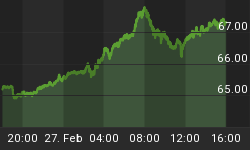How to set the size of a fine for a market behemoth like Google?
Well, consider first that you’ve finally seen a golden opportunity to fight well above your weight category. And it certainly feels good from a European perspective to start landing a few kicks to the body.
Even so, giant Google can take much harder hits than the European Commission’s mind-boggling $5-billion fine.
Then, consider that the US-EU trade rift is still sizzling, so if you’re on this side of the swamp, you just have to jump into the ongoing exchange of barbs and throw a couple of darts. It’s a “let’s teach the Americans” moment of reciprocity.
So, in setting the fine at a whopping $5 billion, Europe had revenge in mind. Plain and simple.
That’s not to say that Google isn’t untainted by any means. All giants have A tendency to abuse power, but the European Union’s executive body’s $5 billion fine against the US high-tech giant is staggering even to those not educated in the art of finanical punishment.
What exactly is Google’s grave sin?
Allegedly, since 2011, Google has imposed illegal restrictions on Android device manufacturers and mobile network operators to cement its dominant position in general internet search. Related: Iraq Unplugged: No Internet, No Protests, No Money
Google must now bring that conduct effectively to an end within 90 days or face penalty payments of up to 5 percent of the average daily worldwide turnover of Alphabet, Google's parent company--which, by the way, was slapped with the EU’s second-highest fine ever of 2.42 billion euro ($2.83 billion) last year for abusing its monopoly over internet searches.
Was the EU Antitrust unfamiliar with Google‘s transgressions and shenanigans, if any, throughout the years?
Of course not. The trade war and Trump’s refusal to grant them an exemption on Iran sanctions just forced them to stop turning a blind eye.
It’s also lost on no one that if Trump hadn’t won the elections, Google wouldn’t have gotten a $5-billion fine. With a pro-EU democrat at the helm, Google probably wouldn’t have been fined at all.
This is not at attempt to advocate for Google, but fair is fair, and the EC’s record-high fine is incomprehensivel and even experts are having a hard time justifying it.
The European Commission's explanation that it has taken into account the duration and gravity of the infringement and that the fine has been calculated on the basis of the value of Google's revenue from search advertising services on Android devices in the EEA hardly sounds credible.
As of late June of 2017, the Commission had imposed pecuniary penalties totalling 8.472 billion euros ($9.54 billion) on businesses between 2013 and 2017 for breaking competition rules, according to the EU statistics. But its most disliked business is Google, which is told to pay half of the sum of EU Antitrust fines from the last four years.
The logic may be clear, but the mathematic substantiation is missing, which makes this personal and political. Google, thus, becomes a martry to the trade war indirectly.
By Linas Jegelevicius for Safehaven.com
More Top Reads From Safehaven.com:
















